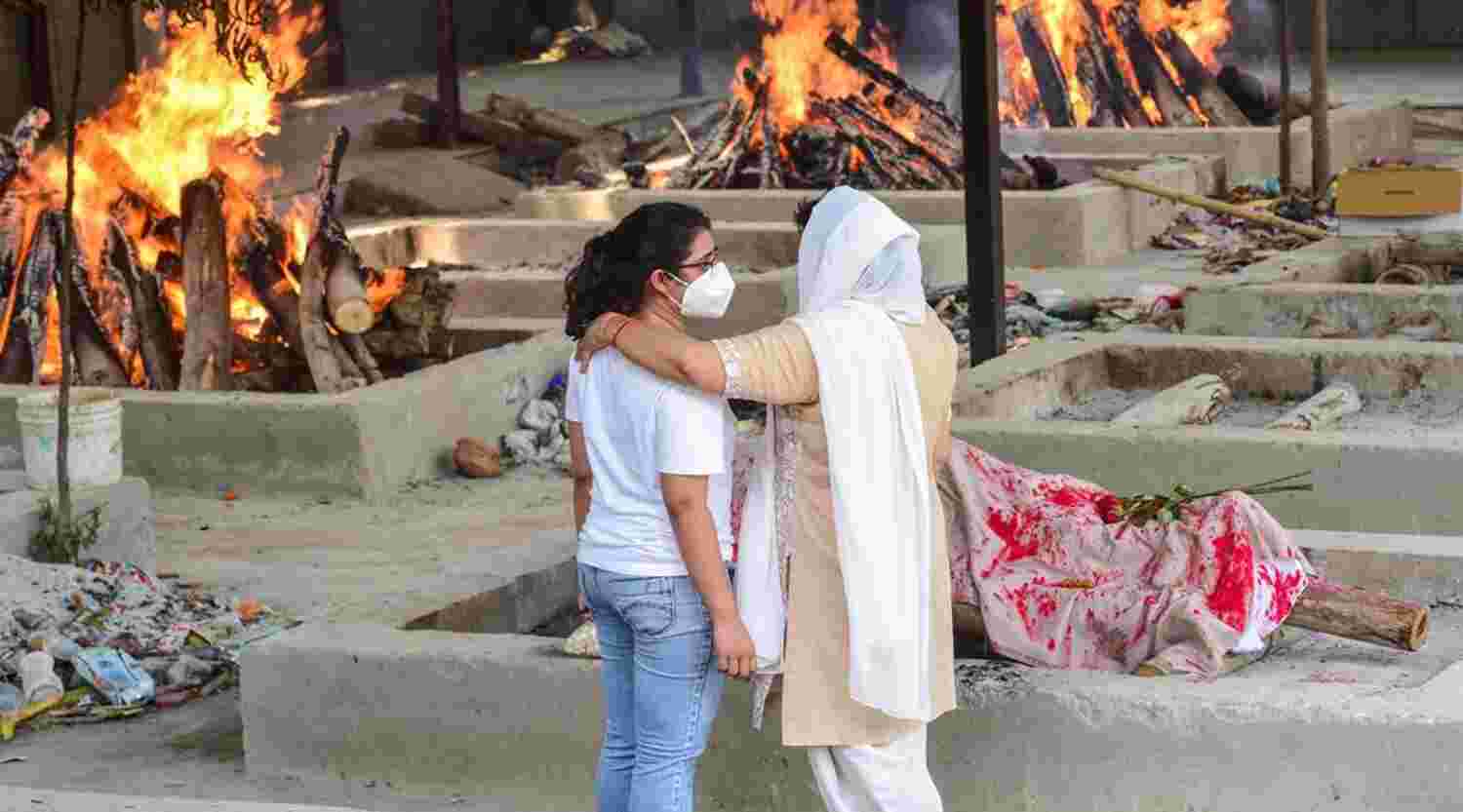Coping with grief
Grief counselling for the bereaved, especially children, who have faced the loss of family to Covid-19 is the need of the hour

The only constant in life is death, but no matter how much we may seem resigned to this eternal truth, nothing ever really prepares us to say goodbye to a loved one. No matter what people say, while emotional wounds may partially heal, they also keep coming back torturing us ever so much. No amount of explanation can make the loss of a kin bearable; we only console ourselves saying that they lived a full life. Age, yes age, does make it easier to accept the passing away of a person. If the dead have age on their side, we justify their life was well-lived, and if it's on ours, then that maturity gives us the strength to accept the demise.
Long-term illness also provides a certain kind of mental conditioning for the family. Looking back at the biggest emotional loss in my life, that of my father 11 years ago, I can say that even while I didn't want to let go, I knew in my heart that I didn't want him to suffer either. Living his pain for a year from close quarters, I knew that every single day that his health wasn't improving, life was far worse for him than me. Long-drawn illnesses also help prepare the family that though they are fighting the disease courageously, and some battles are being won, many times the war will be lost. I have seen friends look relieved when they lost an ailing parent, some feeling guilty at their own sense of respite, others confessing that they couldn't watch their parent hurting anymore. Many had at least gotten a chance to say goodbye.
But nothing, I repeat nothing, prepares one for the sudden loss of a young, healthy person. This second wave of the Covid-19 pandemic is wreaking havoc on young people, many in their 30s and 40s. They are leaving behind inconsolable parents, shocked spouses, orphaned children, and stunned friends who can't believe that the person who was just so recently hale and hearty is a sealed white body bag. How do you cope with 'grief' like that? That's the question that torments me every waking hour.
Once alive human beings are reduced to just condolence messages on Facebook walls. I'm tired of writing 'Om shanti' and 'RIP' like a soulless robot every day; there are so many deaths in one's own circle of family, friends, and acquaintances. If just reading news of the recently deceased causes lacerations on my soul, I can't even begin to imagine the anguish of the bereaved. When my father passed away, the only way I could tackle the grief is by going back to work the very next day. As dysfunctional as it may sound, work was my solace and saviour. I'm not the only one that may not have undergone grief counselling. In a country like ours where mental health is still furtively being discussed and counselling yet to pick up, there is only a faint concept of grief counselling.
It's said that there are many stages of grief — shock and denial that the death happened, the guilt of being alive, anger and bargaining if the loss hadn't happened, depression, and then the more positive stages of working through the loss, and finally, acceptance. But a human being going through a deep, personal loss isn't meant to navigate these stages by themselves. It requires a superhuman Zen mindset to overcome grief without external help. Helplines such as 'Sukh-Dekh', 'NIMHANS', 'Fortis Stress helpline', 'Don't Worry Let's Talk', are among a host of such services available. While urban India still has expensive psychiatrists and counsellors and the awareness to seek help, rural India, which is being crushed by the virus, has barely any such option or knowledge. AYUSH ministry has launched a tollfree helpline, Chhattisgarh government has tied up with UNICEF to launch a child help desk, 'Psychosocial Counselling Service' launched by the Rachakonda Police in Telangana, and the National Commission for Protection of Child Rights (NCPCR) is offering tele-counselling to children through SAMVEDNA (Sensitising Action on Mental Health Vulnerability through Emotional Development and Necessary Acceptance). These are welcome moves but a drop in the ocean.
I know right now the picture is so bleak that all we can think about is survival and fighting the virus. But for the thousands who are being left behind, much more will have to be done in the coming days to alleviate their angst, especially the children who are so indelibly impacted by the Covid deaths. Just the helplines won't do; we will have to proactively reach out to all those who have lost families, and offer them help, counselling, and sometimes, just a patient ear.
The writer is an author and media entrepreneur. Views expressed are personal



